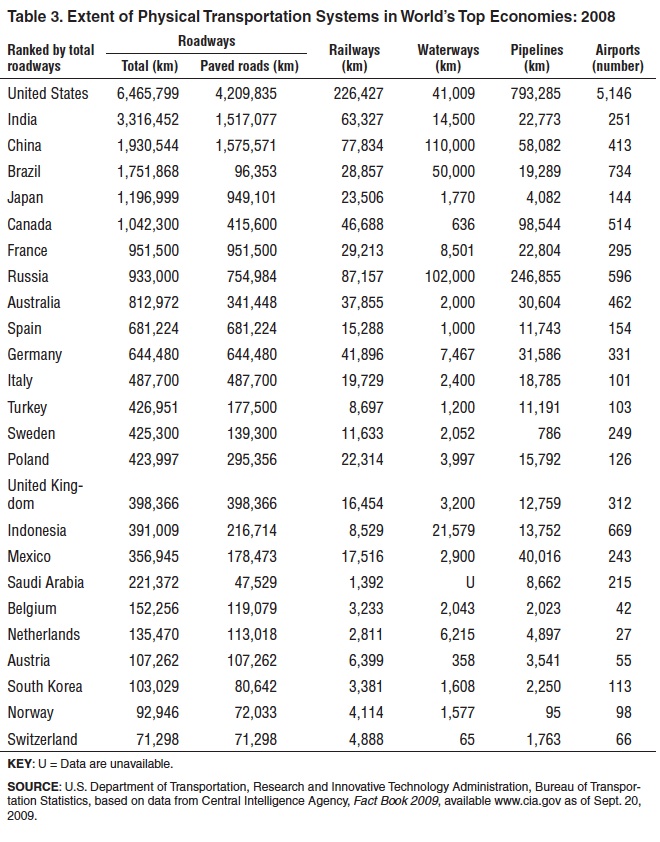
RESEARCH AND INNOVATIVE TECHNOLOGY ADMINISTRATION
BUREAU OF TRANSPORTATION STATISTICS
To move large quantities of goods across the country and around the world, Americans depend on the Nation’s freight transportation system—a vast network of roads, bridges, rail tracks, airports, seaports, navigable waterways, pipelines, and equipment. Today, U.S. households can buy fresh fruits and vegetables in mid-winter, expect fast and reliable next-day deliveries of Internet purchases, and use electronic appliances manufactured thousands of miles away, often in other countries. Because economic activities worldwide have become more integrated and globalized, more goods produced by U.S. factories and farms are bound for export, and imports originate from more than 200 countries. This pace of trade Americans have become accustomed to is made possible by the complex intermodal transportation network that blankets the country and links the United States with world markets.













 RSS Feed
RSS Feed